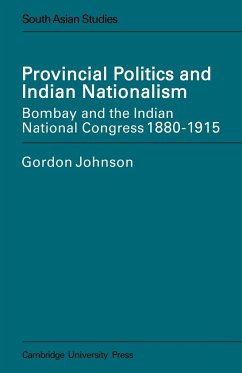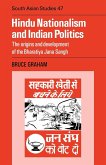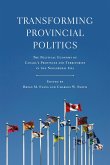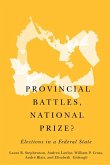This is the first book to stress the need for study of regional and local politics as an integral part of the history of the Congress.
This is a study of the Indian National Congress, the first political association to approach the government of India at an all-India level. The Congress became the most important national party in twentieth century India, and the whole history of the freedom movement is closely bound up with its fortunes. National politics, however, were influenced by regional and local affairs. In the early twentieth century the Indian Congress was split between the 'Moderates' and the 'Extremists'. Dr Johnson argues that this division was closely related to existing rivalries between politicians in the provinces, and that provincial interests determined their national point of view. Because the early Congress depended so much for its regular organisation on men from Bombay, party lines in western India were particularly important in determining the course of the struggles between the parties in the National Congress. The unpublished letters and diaries of the protagonists in these disputes have enabled Dr Johnson to examine this theme in detail. This is the first book to stress the need for study of regional and local politics as an integral part of the history of the Congress. Its revelation of the complex connections between parochial, provincial and all India politics adds a new dimension to our understanding of nationalism in South Asia.
Table of content:
List of plates; Acknowledgements; Abbreviations; Introduction; 1. The Indian National Congress; 2. The politics of western India in the later nineteenth century; 3. Tilak, Gokhale and the Indian National Congress, 1895 to 1906; 4. Tilak, Gokhale and the Indian National Congress, 1907 to 1915; A perspective; Note on sources; Index.
Hinweis: Dieser Artikel kann nur an eine deutsche Lieferadresse ausgeliefert werden.
This is a study of the Indian National Congress, the first political association to approach the government of India at an all-India level. The Congress became the most important national party in twentieth century India, and the whole history of the freedom movement is closely bound up with its fortunes. National politics, however, were influenced by regional and local affairs. In the early twentieth century the Indian Congress was split between the 'Moderates' and the 'Extremists'. Dr Johnson argues that this division was closely related to existing rivalries between politicians in the provinces, and that provincial interests determined their national point of view. Because the early Congress depended so much for its regular organisation on men from Bombay, party lines in western India were particularly important in determining the course of the struggles between the parties in the National Congress. The unpublished letters and diaries of the protagonists in these disputes have enabled Dr Johnson to examine this theme in detail. This is the first book to stress the need for study of regional and local politics as an integral part of the history of the Congress. Its revelation of the complex connections between parochial, provincial and all India politics adds a new dimension to our understanding of nationalism in South Asia.
Table of content:
List of plates; Acknowledgements; Abbreviations; Introduction; 1. The Indian National Congress; 2. The politics of western India in the later nineteenth century; 3. Tilak, Gokhale and the Indian National Congress, 1895 to 1906; 4. Tilak, Gokhale and the Indian National Congress, 1907 to 1915; A perspective; Note on sources; Index.
Hinweis: Dieser Artikel kann nur an eine deutsche Lieferadresse ausgeliefert werden.




![A Provincial Statute of Lower-Canada [microform]: Enacted by the King's Most Excellent Majesty by and With the Advice and Consent of the Legislative C A Provincial Statute of Lower-Canada [microform]: Enacted by the King's Most Excellent Majesty by and With the Advice and Consent of the Legislative C](https://bilder.buecher.de/produkte/65/65522/65522369m.jpg)

![The Case of Doctor William Rees, Late Physician to the Provincial Lunatic Asylum, Toronto, C.W. [microform]: Memorial to His Excellency the Governor G The Case of Doctor William Rees, Late Physician to the Provincial Lunatic Asylum, Toronto, C.W. [microform]: Memorial to His Excellency the Governor G](https://bilder.buecher.de/produkte/65/65567/65567331m.jpg)

![Ontario Elections, 1883, Eleven Years of Liberal Government [microform]: Provincial Rights: Electors' and Speakers' Guide Ontario Elections, 1883, Eleven Years of Liberal Government [microform]: Provincial Rights: Electors' and Speakers' Guide](https://bilder.buecher.de/produkte/66/66137/66137370m.jpg)